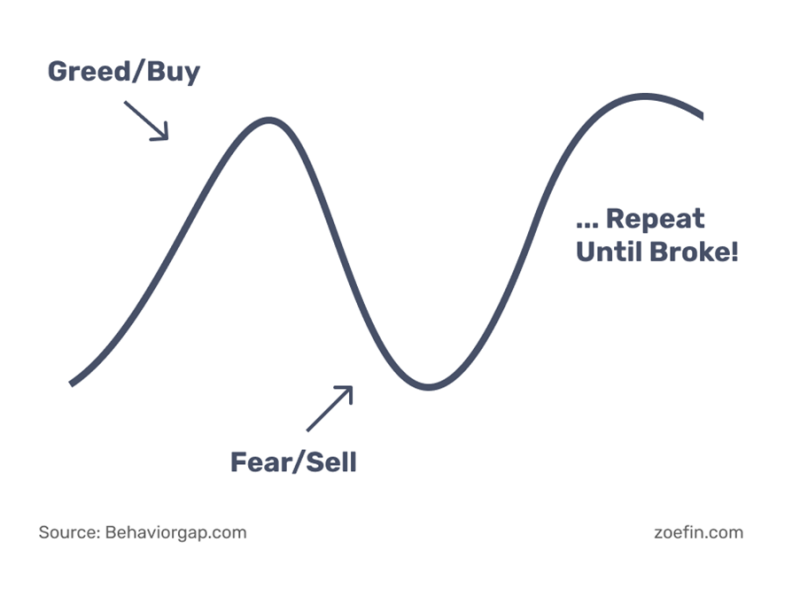Football is something that I have very little interest in. However, I find it fascinating that there is no patience when it comes to managers. The average top-flight manager currently lasts two years and four days. However, if you take out Jurgen Klopp and Pep Guardiola, this drops to one year and 169 days.

The question is, what is success?
Below is a table of the ‘big six’ during the 2010’s:

The issue for fans is that it is not good enough to be in the top six. It is about winning and winning all the time. This means that fans and owners provide managers with little time to build a team and achieve success.
Some of the longest serving managers in recent years include:
Alex Ferguson – Manchester United 1986 – 2013
Dario Gradi – Crewe Alexandra 1983 – 2007
Arsene Wenger – Arsenal – 1996 – 2018
Eventually, even these times come to an end as the expectations for success are such that an average season is seen as poor.
Investing seems to be following the same trend. The data is based on the New York Stock Exchange.

The average holding period of shares as of June 2020 was 5.5 months. In the 1950s this was 8 years. The world has changed; we have so much data available to us and there is an argument that this is reflective of a changing society.
The idea is that not only can we find the next big investment, but we can also predict when to sell. We will get it right…..until we don’t.

The chart above demonstrates the dangers of investing. The famous investor Warren Buffett is an advocate of the “buy and hold” strategy. The table below shows how much holding £1,000 in 1986 could be worth in 2021.

During this time the value could have been higher or lower than the end point.
Looking at this a different way, the chart below shows 20-year annualised returns between 2002 – 2021.

We have read many times that when markets are racing away, Warren Buffett’s strategy doesn’t work, and yet when markets pull back everyone goes back to how good a strategy it is.
We have such a fear of missing out that if we are not in the top position, something must be wrong. Like football management, we have an increasingly short period of time to get it right and if we don’t then we are seen as failing.
Investing should be seen as "dull" and not “exciting”.
The chart below shows how markets move.

We have heard the argument that investors can predicate where the next big returns will come from:

2016, 2018, 2019 and 2021 were all about the US. Is this changing?
These are the expected returns over the next 10 – 15 years:

Whether we opt for a fund manager to select the investments, or a passive strategy that simply follows an index, the key is that if want “exciting” then we must take risk. We must also accept that we won’t always get it right.
Building wealth should be a slow process, even dull. Evaluating success is important but we don’t have to be top all the time. If we are near the top, then that is okay.
The chart below shows how diversification and holding investments over the long term can deliver strong returns without having to guess what the next big winner is:

In summary, the last ten years have been interesting and certainly technology has been a winner. New technologies have benefited from cheap finance but we are now moving to a more normalised environment. If we think we can predict the future, then “exciting” is fine if we understand the risks. But if we are happy to sit back and watch our wealth grow slowly, it might be dull, but all evidence shows that we will get there in the end.
In terms of what we might look for going forward, that is likely to be quality.
Quality are those companies with low levels of debt, are profitable and likely to have a market advantage. These are likely to be the winners going forward.

Ultimately, success is what we view it as. If our success is being in the top-flight then we are likely to be happy, if our success is based on always being top then we are likely to be disappointed.
Going back to football, Everton have been in the Premiership since it started and yet are not in the top-6 clubs. Aston Villa have been in the Premiership for 25 years. Again, success is therefore what we view it as.


Add comment
Comments